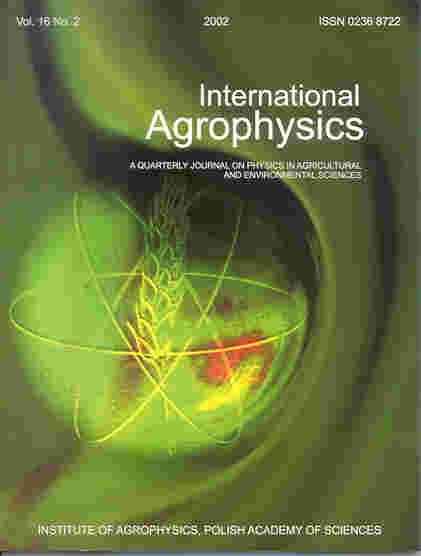|
|
|

|
|
| International Agrophysics |
| wydawca: | Instytut Agrofizyki
im. B. Dobrzańskiego
PAN
w Lublinie |
| ISSN: |
0236-8722 |
vol. 21, nr. 2 (2007)
|
|
|
poprzedni artykuł wróć do listy artykułów następny artykuł
|
|
|
Influence of magnetic fields on the activity of enzymes: a- and b-amylase
and glutathione S-transferase (GST) in wheat plants
|
|
| (pobierz wersję PDF ) )
|
|
|
M. Rochalska1, K. Grabowska2
|
|
|
1 Department of Plant Physiology Faculty of Agriculture and Biology, University of Agriculture, Nowoursynowska 159, 02-787 Warsaw, Poland |
|
|
2 Department of Soil Environment Sciences
Faculty of Agriculture and Biology, University of Agriculture, Nowoursynowska 159, 02-787 Warsaw, Poland |
|
|
vol. 21 (2007), nr. 2,
pp. 185-188
|
|
|
streszczenie
The paper presents the impact of magnetic fields on enzyme activities in plants. Three species of wheat with different ploidy levels were used in the experiments: Triticum monococum (diploid), T. dicocum (tetraploid), and T. aestivum (hexaploid). Air-dry seed samples, made up of 100 seeds each, were treated with an alternating magnetic field of low frequency (16 Hz) for 2 h. The control samples were not tested with the magnetic field. After the 13th day of magnetic field treatment, measurements were conducted on the following enzymes: a- and b-amylase and glutathione S-transferase. The magnetic field caused a reduction in the activity of alpha- and beta amylases. This can be really important in breeding and seed production and in certain sections of the agricultural and food industry. Plants grown from treated seeds will be more resistant to sprouting in the future. The magnetic field caused a higher activity in the glutathione S-transferase enzyme. It caused that the plants have a higher resistance to pathogen attack, oxidative stress, and heavy-metal toxicity.
|
|
słowa kluczowe
magnetic field, germination of wheat, magnetic biostimulation, alpha-amylase, beta-amylase, glutathione S-transferase
|
|
|
|
|
|
|